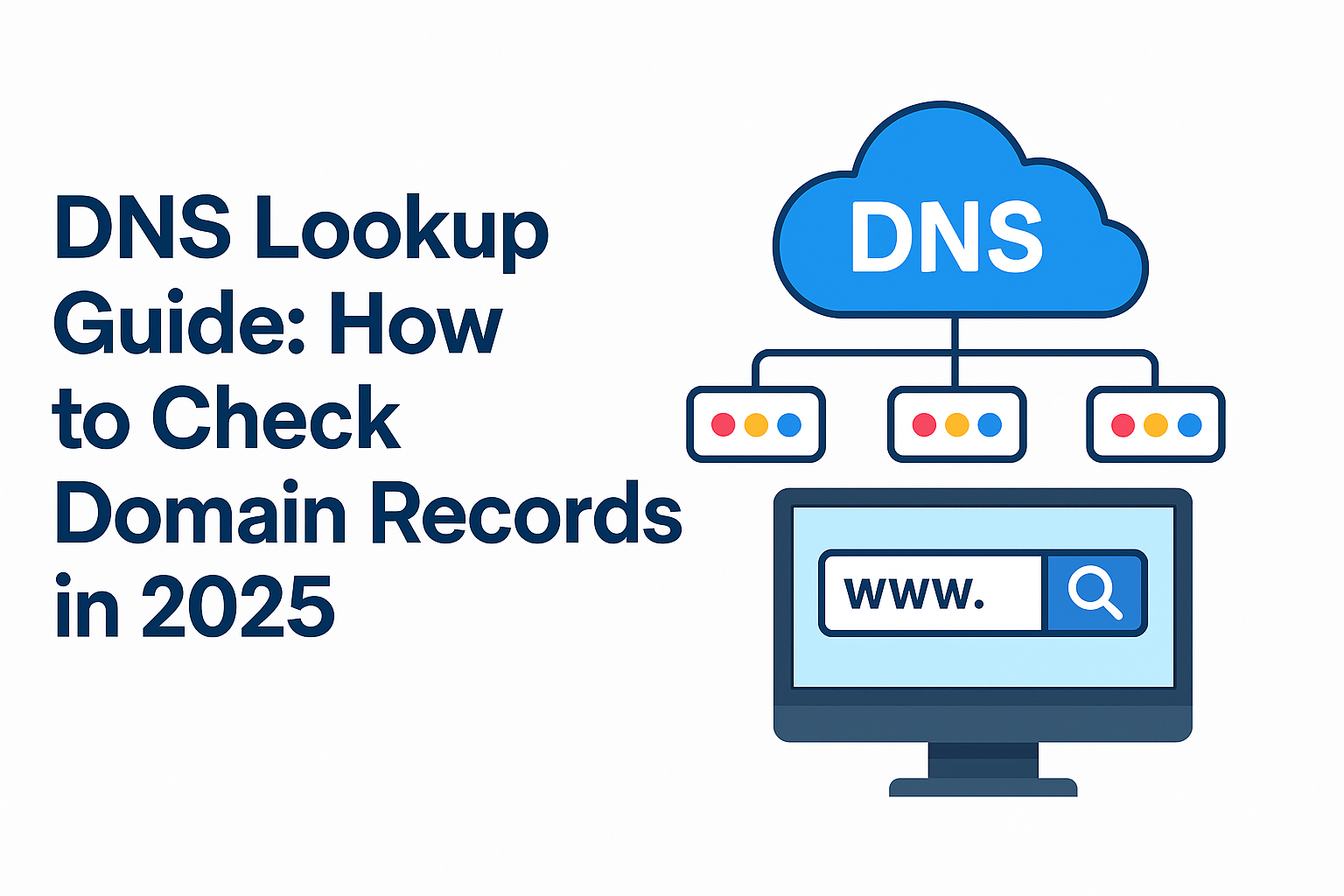
25
DNS Lookup Guide: How to Check Domain Records in 2025
Check DNS records with the Recipeace DNS Lookup Tool. Learn how DNS works, why it matters for website performance and security, and how to fix common DNS issues in 2025.
Introduction: Why DNS Lookup Matters
Every time you type a website address into your browser, the Domain Name System (DNS) works behind the scenes to connect you to the right server. Without DNS, you’d have to remember long IP addresses instead of simple domain names like recipeace.blog.
In 2025, DNS lookups remain a core tool for website owners, IT professionals, and cybersecurity experts. With the right DNS lookup tool, you can troubleshoot websites, boost performance, and protect against attacks.
This guide explains DNS basics, record types, and how to use the free Recipeace DNS Lookup Tool to check domain records.
What Is DNS?
- DNS (Domain Name System): The “phonebook of the internet.”
- Converts human-readable domains (example.com) into machine-friendly IP addresses (93.184.216.34).
- Ensures smooth web browsing and email delivery.
Why Perform a DNS Lookup?
- Check Website Connectivity
Make sure your site is pointing to the right server. - Verify Email Settings
Ensure MX records are correct to avoid email issues. - Boost Security
Identify suspicious DNS changes caused by hackers. - Domain Research
Useful for SEO audits and competitor analysis.
Types of DNS Records You Can Check
- A Record: Maps domain to IPv4 address.
- AAAA Record: Maps domain to IPv6 address.
- MX Record: Handles email routing.
- CNAME Record: Alias pointing to another domain.
- NS Record: Lists authoritative name servers.
- TXT Record: Stores extra info (SPF, DKIM for email security).
- SOA Record: Provides domain authority details.
How to Perform a DNS Lookup
Use the Recipeace DNS Lookup Tool:
- Enter your domain name.
- View DNS records instantly.
- Copy results for troubleshooting or audits.
Common DNS Issues and Fixes
- Website Not Loading – Wrong A record → Update IP address.
- Emails Not Delivering – Misconfigured MX records → Fix in hosting panel.
- Slow Website – Poor DNS resolution → Use premium DNS services.
- Security Risks – Outdated TXT/SPF records → Update to prevent spoofing.
DNS and Website Security
- DNS Hijacking: Attackers redirect traffic to fake sites.
- DNS Spoofing: Fake DNS responses mislead users.
- Mitigation: Regular DNS lookups + DNSSEC (DNS Security Extensions).
DNS in SEO and Performance
- Faster DNS = faster website loading = better SEO.
- Correct CNAME and A records prevent downtime.
- TXT records support Google verification for search tools.
Case Study: DNS Misconfigurations Cost Businesses
A company’s email went offline for 48 hours due to a broken MX record. A simple DNS lookup could have prevented it. After fixing, they added monitoring with automated lookups to avoid future downtime.
Future of DNS in 2025 and Beyond
- DNS over HTTPS (DoH): Adds encryption for privacy.
- AI DNS Tools: Predict and auto-fix misconfigurations.
- Quantum-Resistant DNSSEC: Stronger protection for the future.
Conclusion: Keep Your Domain Healthy with DNS Lookup
DNS is the backbone of the internet, and checking your records regularly keeps your site fast, secure, and reliable.
Use the Recipeace DNS Lookup Tool to:
Troubleshoot connectivity issues
Verify email records
Improve security with monitoring
Optimize your website performance
Contact
Missing something?
Feel free to request missing tools or give some feedback using our contact form.
Contact Us